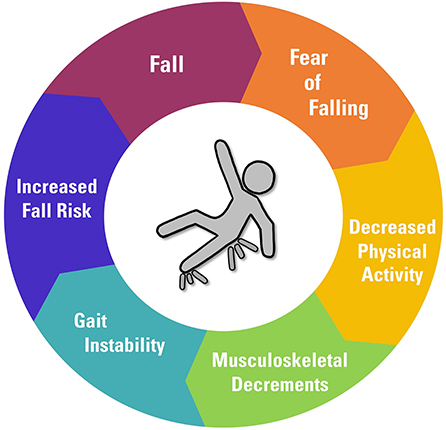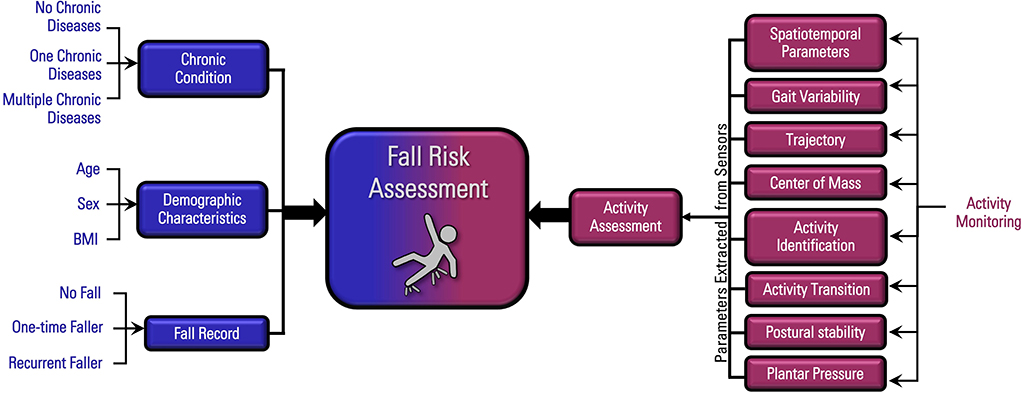Some Known Details About Dementia Fall Risk
Some Known Details About Dementia Fall Risk
Blog Article
Unknown Facts About Dementia Fall Risk
Table of ContentsDementia Fall Risk - An OverviewExcitement About Dementia Fall RiskSome Known Details About Dementia Fall Risk The Best Strategy To Use For Dementia Fall RiskThe 7-Second Trick For Dementia Fall Risk
Guarantee that there is a designated location in your medical charting system where team can document/reference ratings and document pertinent notes connected to drop prevention. The Johns Hopkins Fall Threat Evaluation Device is one of many tools your personnel can use to help prevent damaging clinical events.Patient drops in health centers prevail and incapacitating adverse occasions that persist regardless of years of effort to decrease them. Improving communication across the evaluating registered nurse, treatment team, patient, and person's most included family and friends may reinforce fall avoidance initiatives. A group at Brigham and Female's Healthcare facility in Boston, Massachusetts, looked for to develop a standardized loss prevention program that centered around boosted communication and person and household engagement.

The development group emphasized that successful implementation relies on patient and personnel buy-in, assimilation of the program into existing process, and integrity to program processes. The group kept in mind that they are coming to grips with just how to guarantee connection in program execution during periods of situation. During the COVID-19 pandemic, for instance, a rise in inpatient falls was related to constraints in client involvement together with limitations on visitation.
A Biased View of Dementia Fall Risk
These events are commonly considered avoidable. To execute the treatment, companies require the following: Access to Loss TIPS resources Loss TIPS training and retraining for nursing and non-nursing staff, including brand-new registered nurses Nursing operations that permit patient and family engagement to perform the drops evaluation, make sure use the avoidance plan, and conduct patient-level audits.
The outcomes can be very damaging, usually increasing client decline and triggering longer medical facility stays. One study approximated stays increased an added 12 in-patient days after an individual loss. The Autumn TIPS Program is based on interesting people and their family/loved ones throughout three major processes: assessment, customized preventative treatments, and auditing to guarantee that people are involved in the three-step fall avoidance process.
The patient analysis is based upon the Morse Fall Range, which is a validated loss risk analysis tool for in-patient medical facility setups. The scale consists of the six most usual reasons people in healthcare facilities fall: the person autumn background, high-risk problems (including polypharmacy), use IVs and various other external gadgets, psychological standing, gait, and mobility.
Each risk variable relate to several actionable evidence-based interventions. The registered nurse creates a plan that incorporates the treatments and shows up to the treatment team, individual, and family on a laminated poster or printed visual help. his explanation Registered nurses create the plan while consulting with the client and the individual's family.
Dementia Fall Risk Things To Know Before You Get This
The poster serves as a communication tool with other members of the person's care group. Dementia Fall Risk. The audit part of the program consists of examining the individual's understanding of their danger variables and avoidance strategy at the system and hospital degrees. Registered nurse champions conduct at the very least five individual meetings a month with individuals and their households to look for understanding of the fall avoidance strategy

A projected 30% of these falls find lead to injuries, which can vary in extent. Unlike various other unfavorable events that call for a standard medical reaction, loss avoidance depends highly on the needs of the person. Consisting of the input of people who recognize the patient ideal permits higher customization. This approach has actually shown to be more effective than loss prevention programs that are based primarily on the production of a danger rating and/or are not adjustable.
The Dementia Fall Risk Diaries

Based on bookkeeping results, one website had 86% compliance and two websites had more than 95% compliance. A cost-benefit evaluation of the Loss ideas program in eight health centers estimated that the program expense $0.88 per person to execute and caused cost savings of $8,500 per 1000 patient-days in straight expenses associated with the avoidance of 567 drops over three years and 8 months.
According to the advancement group, organizations curious check about carrying out the program needs to conduct a readiness evaluation and drops prevention spaces evaluation. 8 Additionally, organizations ought to make certain the essential infrastructure and workflows for implementation and establish an execution plan. If one exists, the company's Loss Avoidance Job Pressure need to be involved in planning.
Dementia Fall Risk Fundamentals Explained
To begin, organizations need to ensure conclusion of training components by nurses and nursing assistants - Dementia Fall Risk. Healthcare facility staff should analyze, based upon the needs of a healthcare facility, whether to utilize an electronic wellness document printout or paper variation of the autumn prevention plan. Applying teams should hire and train nurse champs and establish procedures for bookkeeping and coverage on loss data
Staff require to be entailed in the process of redesigning the operations to involve people and household in the analysis and prevention strategy procedure. Equipment needs to be in location so that devices can comprehend why a loss happened and remediate the reason. Much more specifically, registered nurses ought to have networks to offer recurring feedback to both team and unit management so they can adjust and improve autumn avoidance process and connect systemic problems.
Report this page